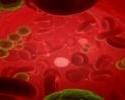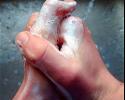Finding out that your child suffers from obsessive-compulsive disorder (OCD) can be overwhelming and stressful for both you and your child.
Luckily, there are many treatment options available to help you and your child live a healthy, normal life.
OCD is curable through regular treatments like therapy and medication. These treatments are supplemented by the attention you, family members and school staff can provide. Open communication among a child's family, school and doctors can optimize the care and quality of life for the child.
Counseling and Therapy
Counseling can help the child, as well as everyone around them, to understand what OCD is and what the symptoms are. It is important to familiarize those close to you and your child with the fact that OCD is an illness with complex genetic and environmental origins, and that it is not the result of a flawed attitude or personality.
Therapy can also reduce the impact of OCD symptoms in a child's everyday life. It is recommended that parents discuss their child's particular needs with a doctor to determine which psychological treatments could be most beneficial for their child.
Cognitive Behavior Therapy
Cognitive behavior therapy focuses on changing problematic, repetitive behaviors and on developing more positive thinking patterns as alternatives to the negative thoughts that cause symptoms. In younger patients, personifying an obsession allows children to "fight back" against the thoughts that could be keeping them away from peers and family.
There are different CBT treatments that are available for both parents and their children:
- Individual psychotherapy: This kind of therapy can be useful for young people with OCD, especially when children have constant stress factors in their lives which could be making their symptoms worse. Children with OCD often feel a sense of failure and may even believe the illness to be their fault. Individual psychotherapy can help children become aware of these feelings of failure and self-blame.
- Parent guidance sessions: These sessions can inform and help parents to manage their child's illness. This type of therapy can be beneficial when a child's OCD is affecting the family as a whole. The sessions can provide parents with effective parenting skills specific to OCD children and can address complex feelings that may arise when raising a child who has a psychiatric disorder.
- Group psychotherapy: This type of therapy can be helpful to a child by providing a safe place to talk with other children who suffer from OCD and can allow a child to practice social skills in a carefully controlled setting.
- School-based counseling: This kind of counseling can help a child with OCD to adapt to the social, behavioral and academic demands of the school setting.
OCD Medication
While psychotherapy may be sufficient to treat some children with OCD, other children may not improve with therapy alone and may benefit from medication as well. When it comes to starting your child on medication, it is important to evaluate both the benefits and risks.
The antidepressants Celexa, Lexapro and Paxil are commonly prescribed to treat symptoms of OCD. Other medications used are Luvox, Prozac and Zoloft. Sometimes larger doses of antidepressants, which can be up to four times the standard antidepressant dose, are prescribed to improve OCD symptoms.
Effectiveness and Side Effects
In most cases, medication begins to be effective in a child or adolescent after having taken them for at least two to four weeks. A full 12 weeks may be needed in order to determine whether the medication is having the desired effect or not. There is no "best" medicine to treat OCD, and it may take time to find the medication that is right for your child. It is also important to remember that medicines usually reduce, rather than eliminate, symptoms of OCD.
Most side effects occur soon after starting a medication, and adverse reactions can occur months after medicines are introduced. If your child experiences agitation, restlessness and/or increased irritability, or makes comments about self-harm after starting an antidepressant, it is important to let your doctor know. It is suggested that you keep frequent communication among your child's doctor, the family and your child about any odd symptoms or reactions.
Source: Massgeneral.org








